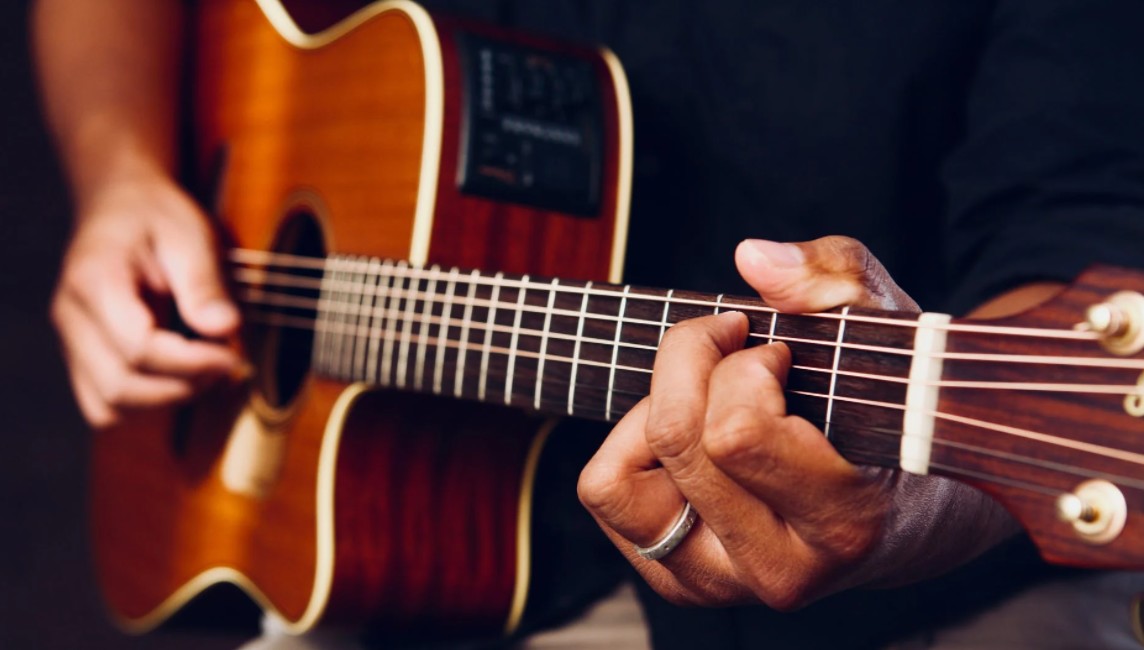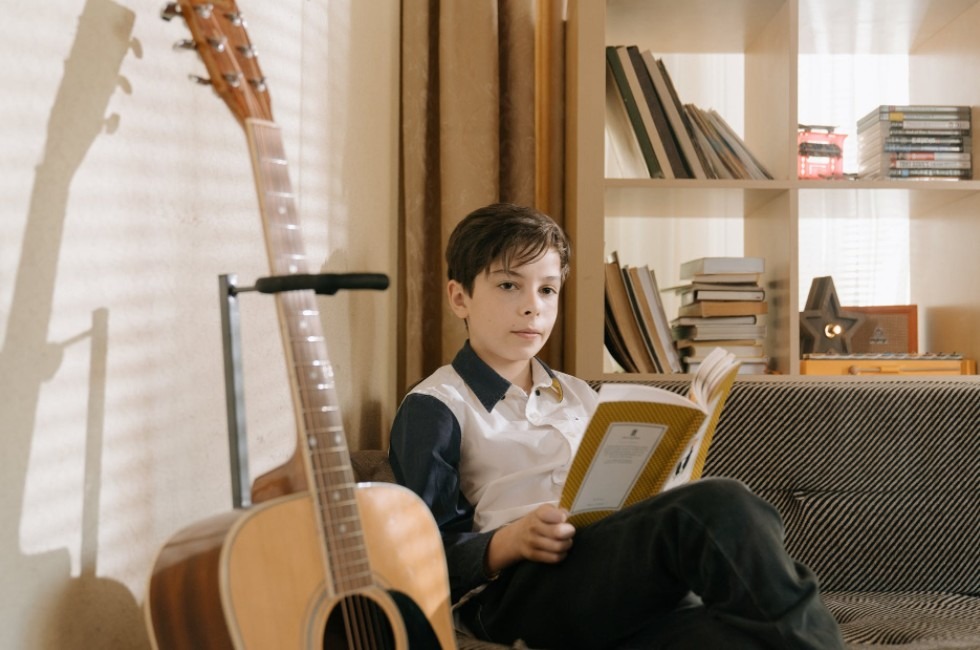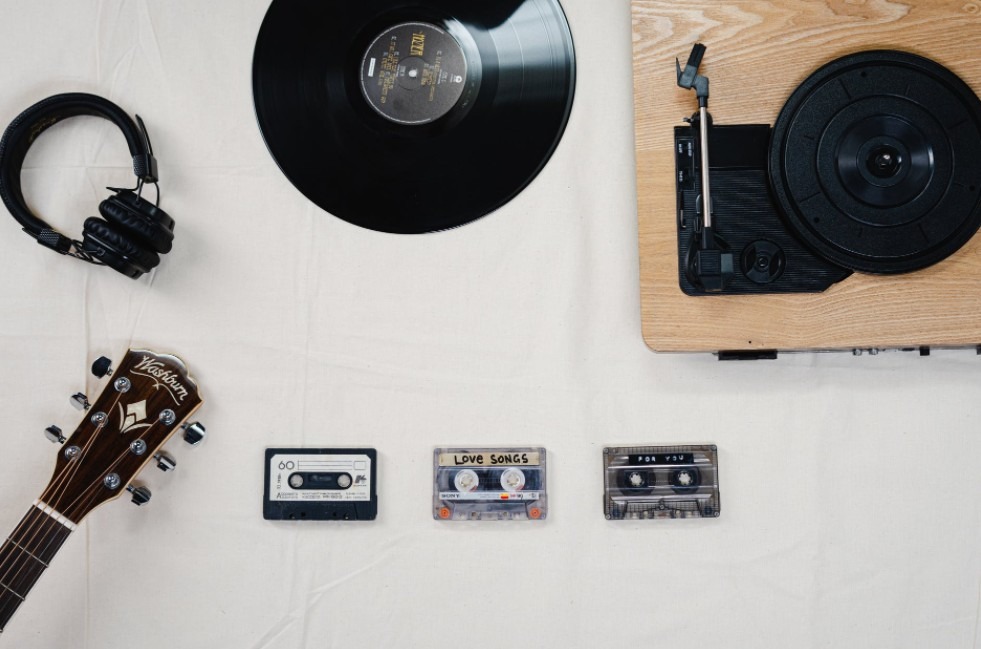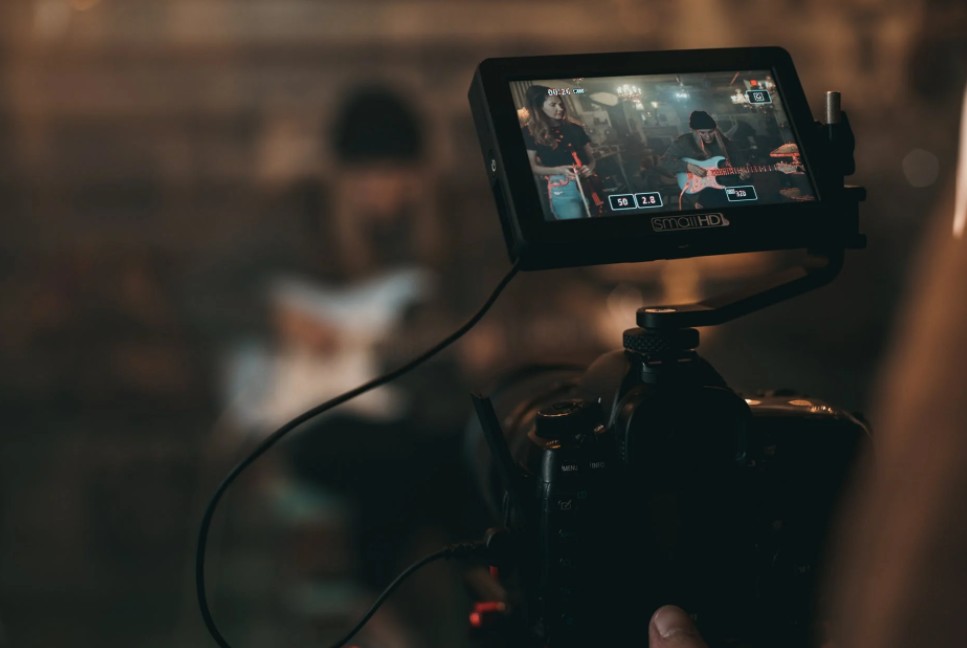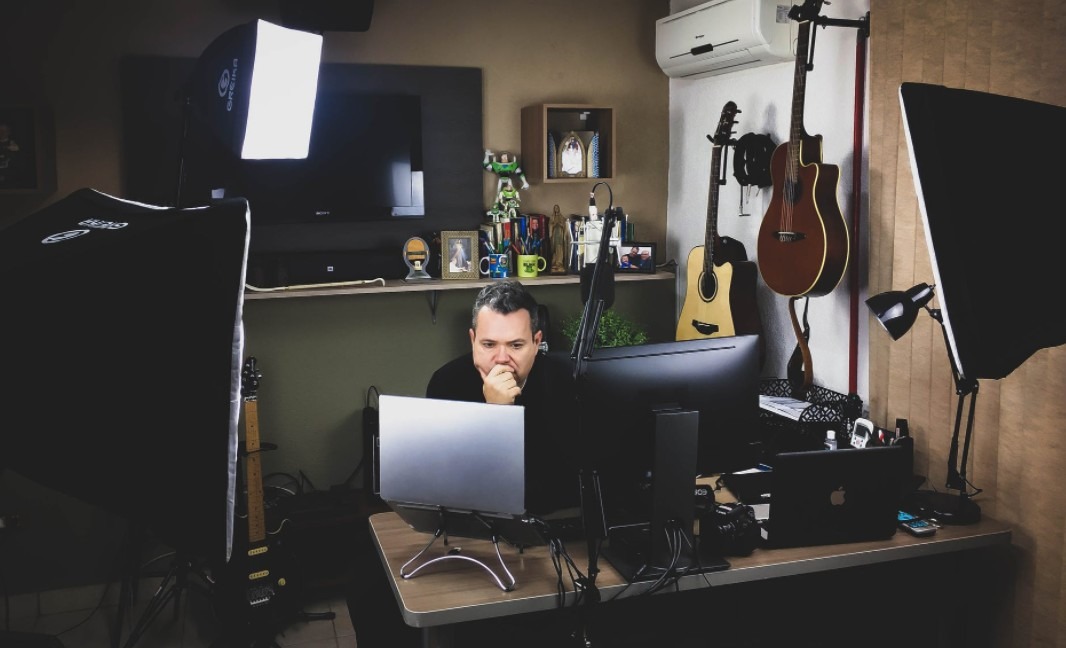Music is one of the many beautiful things this world contains, and the guitar is definitely one of the most important ingredients of it. Even though it is an easy instrument to learn, it can be pretty challenging for you to master it.
Every guitarist wishes to become a better and more skillful player who can produce great music and display their incredible skills. But becoming a successful and skillful guitarist isn’t a cakewalk. It is a lengthy process that requires a lot of effort, time, knowledge, dedication, and patience.
Many guitar players often compare their skills, progress, and growth with other guitarists, resulting in discouragement and lack of enthusiasm in them. Following in someone else’s footsteps will not necessarily take you to the same destination. You need to discover your own style of music to start a journey of your own.
Looking at someone else’s progress and beating yourself up is not the right thing to do. It will only make you more miserable and distant from music. Remember that even the most successful guitarists weren’t born a master – they worked harder each day to become what they are today.
Learning the guitar is not an easy ride, but with some passion, persistence, and the right guidance, you can reach your destination in no time.
How to become a guitarist with skills and success is the question we get a lot these days. Even though learning how to play the guitar can be a bit tricky, we have made it quite easy for you with some really basic and helpful tips.
5 Tips to Become a Skillful and Successful Guitarist
- Practice Like a Champion
Whenever you decide to learn a new skill, the most important step in mastering it is to keep practicing as much as you can. When you are learning to play the guitar, the most essential ingredient in the learning process is practicing. Preparing a schedule to help adjust your practice sessions with other tasks of the day is the first thing you should do.
When you decide on a specific time for your practice, it becomes easier to take out time for it. If you feel like practicing more, you can always adjust a few more minutes in your daily schedule. The more you practice, the better you become.
So other than the fixed practice time in your schedule, you can donate a few extra minutes from your day for practicing the guitar. You can find extra time to practice the instrument – for example, when you are waiting for lunch or dinner or done with your homework, or instead of wandering on Instagram.
People who are learning to play the instrument often wake up early in the morning to practice it before the others wake up. Practicing to play the guitar will not only prepare you to excel at it but will also make you more disciplined, active, creative, and patient.
- Setting the Right Time and Exercises
While practicing the guitar, make sure to choose the right type and duration of exercises to help bolster your skills and make them more accurate. Introduce new and efficient techniques and exercises in your practice sessions that can ace your guitar-playing skills.
Avoid the exercises and routines that are time-consuming and less effective as they may slow down your progress and be a complete waste of your efforts and energy.
Usually, it’s difficult to pull out three to five hours from our busy schedule on a typical day. But it doesn’t mean you can’t be a credible guitarist if you don’t practice three to five hours a day. It means that you have to practice your best at whatever time you get.
If you manage to practice a good half an hour daily, it would be an impressive achievement. But if not, then at least a ten-minute practice session a day is what you need to make possible. Besides these ten minutes, try to extract extra minutes from your day to hold the guitar and play it.
- Learn All About the Guitar
Before you take a guitar in your hands and start practicing it, there is a lot of material on playing the guitar you need to study. If you wish to be a successful and skillful guitarist, you need to start from scratch, that is, by studying the guitar theory, which will guide you throughout your learning process.
Studying and learning the guitar theory means knowing about the guitar scales and intervals and the awareness of the musical keys. When you learn all the necessary elements of the guitar, you must learn to bring them together and apply them while playing.
The guitar theory might seem like small tricks and techniques to learn, but it’s not just that. The subject in itself is quite vast and detailed. To become a skillful guitarist, it is important to know your theory very well.
An efficient tip here that you need to remember is to take it slow. Do not try to fit it all in your brain in one fell swoop. It will take time for you to learn about the depth of music and the guitar, which is why a storm of lessons is not recommended. Taking each lesson at a time will encourage you to understand it better, and your brain will remind you to use it while playing.
When we talk about the guitar theory, the first thing that pops up is the guitar scales that are nothing but a bunch of musical notes. This is the earliest lesson you need to learn to get the basic knowledge of your instrument and how to play it. Most people know that these scales are further divided into major and minor scales, both of which produce a wide range of sounds.
Similarly, you should learn about the intervals between every note, the guitar chords, and the relation of chord notes to scale notes. These theory lessons will surely assist you in your practices and turn you into a much better guitarist.
- Record, Hear and Watch Yourself
When you are playing the guitar during your practice sessions, many questions can come up in your mind, which pushes you to think if you are doing it right or not. It is difficult for many people to set their focus on every single point while playing the guitar. As a result, they can miss out on a lot of mistakes and blunders in their piece.
But there is a way you can fix this problem, and that is by recording yourself while you perform. Set your mobile, computer, or any other recording device before you and start recording yourself while you play. After you are done playing, stop the recording and listen to it.
You will notice many more elements and details in your recorded piece that you missed in the live performance. This can provide you a better perspective on your particular performance and your guitar-playing skills in general.
A much better idea is to record a video of yourself while playing the guitar to have a thorough look at it later. The video recording will help you learn more about your methods, techniques, positioning, body postures, etc., while playing. Based on that, you can bring changes in your style, techniques, and attitude.
When playing the guitar, another important point to keep in the notice is the movement of your body, including your hands, arms, fingers, shoulders, back, neck, and face. By recording your practice sessions, you can be the first one to enjoy your performances. You’ll be able to listen to your own sound and know what the others would listen to, which might help you better judge yourself.
- Track and Assess Your Growth
Many young learners believe that giving a sufficient amount of time from their daily life to the practice sessions means that they are on the road to success and will become an excellent guitarist. It may be true, or it may be not. In either case, you won’t be able to find out if you don’t track your progress. Even when you believe that your practice sessions are going great and extremely productive, it can be a completely different picture in reality.
Some people increase their practice time when they discover the ineffectiveness of their sessions. But is that the right solution? It can be a possibility that the short duration of your sessions is the reason behind the non-productive outcomes, but in most cases, it is the inaccuracy of methods, techniques, and exercises that leads to ineffectiveness.
There are several ways in which you can track and evaluate your progress, enjoying the process simultaneously. Many professionals advise you to record your first and last practice sessions of the week and then compare them to each other to analyze your growth throughout the week.
You can continue this process for months or even years to have a complete and proper record of your progress over that certain time period. Ensure that your records are properly prepared and maintained so that you can easily access them whenever you want.
Evaluating and reviewing your progress will help you stay focused and attentive and provide you with a definite motivation for your practice sessions.
Conclusion
If you thought that becoming a skillful guitarist is an impossible task, worry no more because we have got some amazing tips for you to get yourself a guitar and try your hand at it. By following these basic tips, you can fulfill your dream that you thought was unachievable.

